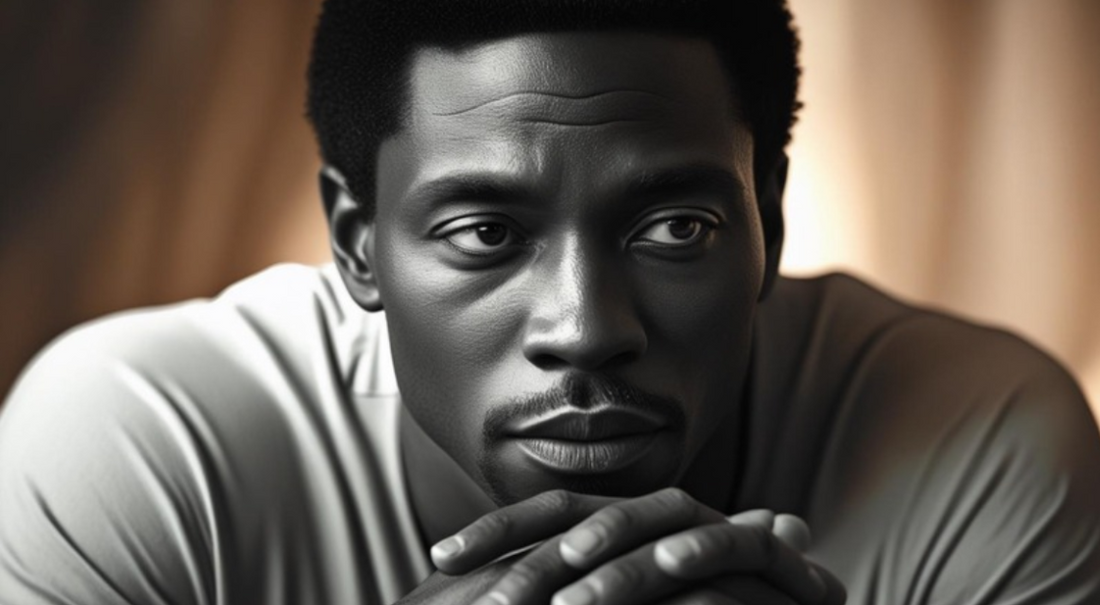
TOXIC MASCULINITY AND BLACK MALE VULNERABILITY SERIES: Part 1
Share
There's an issue in the black community that needs to be addressed. It is an ongoing discussion that not only plays into the vulnerability of the people who are being targeted but is a form of toxic behavior. Poisonous behavior has been deeply ingrained in the community for years, passed down from one generation to the next, and persists to this day. This issue has been debated, bringing anger, mental illness, and even death. Toxic Masculinity and Black Male Vulnerability is a discussion that the black community might not be ready for, but it's a discussion that needs to be had, and well, someone has to do it.
Black men have faced historical stereotypes, cultural pressure, toxins, emotional vulnerability, stigmas, abuse, abandonment, and more. They have gone through emotional lockdowns while suppressing their feelings, as they were told, "You can't act that way; you're a man," "Man, don't cry," "You can't be a weak boy; you need to be strong at all times." "Don't act that way; you're not a woman," and much more. These are words that have enforced emotional repression. Many horrific things have happened to Black males, but they don't talk about it, and the reason behind this could be one of the reasons that I am discussing in this blog.
The black community has pushed black males to value toughness and self-reliance over vulnerability. This is even something that is taught by not only female figures but also male figures in their lives; this has caused Black males to go through depression, stress, substance use, and mental, physical, and sexual abuse, and has contributed to them not seeking help or talking about it. That is where the issue is: this is something that is continuing this year, that Black Males face as a norm and are taught as a norm, that if they want to be a man, they would have to ignore all their feelings and anything that makes them seem vulnerable. Why is it that vulnerability makes you less of a man? What is the science behind that? If you become vulnerable, does it change your biology as a male?
As someone in the medical science field with degrees in behavioral science as well, I can tell you that, no, it does not. You're a man, whether you're vulnerable or not; you're a man, whether you cry or not; you're a man, whether you let people see the raw emotions that you have been holding back for years or not. It is okay to be vulnerable; it's okay to be open; it is okay to discuss the things you've been holding inside for as long as you can remember; all that you need is a safe outlet for this, and then the level of relief you will feel will come, the ease and mental freedom is there for you.
The stereotypes and adultification of Black males are something that happens often; it starts from an early age. Some Black males even become the man of the house at an early age; they are seen as less innocent and expected to show emotional restraint. Some have even had their childhood taken from them, and they face many stereotypes portraying them as aggressive or threatening by their community and by their people in series, movies, books, and more. This doesn't help but instead reinforces pressure to appear solid and not emotional. How can these Black males, especially young males, see themselves in positive roles if that is not being portrayed or shown to them in their community or on TV? Why is this ugly stereotype being profited on to this day? It is propaganda that is enforced and pushed, yet when the Black young males turn this propaganda into their actual lives, they are frowned upon, looked down on, killed, and more, with not even a thought about where it started and what went wrong.
There is a discussion of toxic masculinity being racial bias, that it is an added strain, that Black males are fighting not only stereotypes but also gendered expectations, and this is true. There have been many studies that adhere to this conversation by showing correlations and how mental health, plus racial stigma, come into play. I want to start a series where I talk about how to remove this ongoing issue from the minds of young Black males, not only because I care, but because it is an ongoing issue that I want to end, especially when it comes to being a mother myself.
Sincerely,
Kassandra Vivu
Author, Content Writer, Creator
Citation/References
Hooks, B. (2004). We Real Cool: Black Men and Masculinity.
Hines, E. M., et al. (2021). Preserving Innocence: Ending Perceived Adultification.
Baker, A. (2019). "Let Black Boys Cry"
Apraku, A. MD (2024). "Black Boys Cry: Shattering Toxic Myths"
